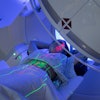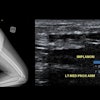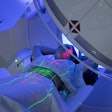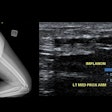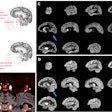
NEW YORK (Reuters Health), Aug 23 - A low ankle-brachial index (ABI) is prevalent in patients with established atherothrombotic disease and is present in nearly one-third of those at risk, report investigators with the international "a Global Atherothrombosis Assessment (AGATHA)" study.
Results of the study, reported by principal investigator Dr. F. Gerald R. Fowkes of the University of Edinburgh, Scotland, and colleagues, is published in the August issue of the European Heart Journal
AGATHA involved 1792 patients defined as at-risk for atherothrombosis and another 7,099 with established disease. Standard electrocardiograms were performed on all patients. Blood pressure was measured by cuff and Doppler ultrasound. ABI was the ratio of the ankle to arm blood pressure.
Among patients with clinical evidence of arthrosclerosis 65.2% had one diseased arterial bed, 27.6% had disease in two arterial beds, and 7.1% had disease in all three arterial beds.
Abnormal ABI was present in 30.9% of at-risk patients and in 40.5% of those with established disease. As a rule, the lower the ABI, the greater the number of risk factors for atherothrombosis.
The investigators note that previous studies have shown that a low ABI is associated with a twofold increase in risk of cardiovascular events and death.
"These findings suggest that the ABI has the potential in both at-risk and diseased patients to be used to contribute to more precise estimates of future risk of major cardiovascular events and death and to guide decisions on prevention ad treatment," Dr. Fowkes and colleagues note.
AGATHA is an ongoing research project.
Last Updated: 2006-08-22 16:09:08 -0400 (Reuters Health)
Eur Heart J 2006;27:1861-1867.
Related Reading
ACC/AHA issue new treatment guidelines for peripheral artery disease, December 7, 2005
Copyright © 2006 Reuters Limited. All rights reserved. Republication or redistribution of Reuters content, including by framing or similar means, is expressly prohibited without the prior written consent of Reuters. Reuters shall not be liable for any errors or delays in the content, or for any actions taken in reliance thereon. Reuters and the Reuters sphere logo are registered trademarks and trademarks of the Reuters group of companies around the world.

